Understanding The Impact of AI on Career Choices
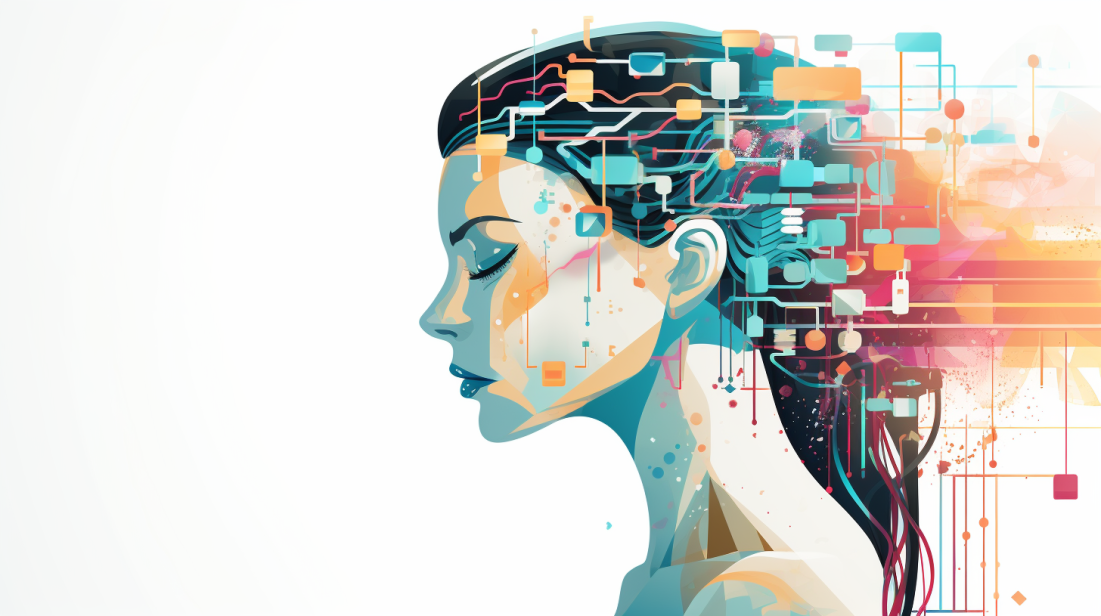
Welcome to my article on the fascinating topic of the impact of artificial intelligence (AI) on career choices. In today’s rapidly evolving world, AI is reshaping the future of various industries, and it is essential to understand how it influences our career paths. From personalized learning in education to advanced medical research in healthcare, AI is revolutionizing the way we work and opening up new possibilities.
Throughout this article, we will explore the integration of AI in industries such as healthcare, finance, governance, and education. We will discuss how AI is being utilized in each sector and the resulting impact on career opportunities. Additionally, we will delve into the role of AI in education and career planning, exploring how it can personalize the learning experience and match job seekers with suitable opportunities.
There are concerns about AI potentially replacing human workers, but experts argue that AI is still limited and specialized. Human judgment and skills remain essential, and AI is expected to create more jobs and drive innovation across industries. We will also address these concerns and opportunities in depth.
As we delve deeper into the topic, we will discuss the role of AI in healthcare, finance, and governance, highlighting the specific contributions it makes to research, treatment, risk management, and public policy management. We will also explore the implications of AI on career planning, including the use of AI-powered programs in the job search process.
Finally, we will examine the future of AI in relation to career paths. We will explore the potential impact on job prospects and the skills required to adapt to this changing landscape. We will also discuss the importance of addressing bias in AI algorithms and the need for continuous career growth and adaptation in the age of AI.
Throughout this article, we will share insights and perspectives, including the thoughts of visionary entrepreneur Elon Musk on the future of career choices in an AI-driven world. So, stay tuned as we uncover the exciting possibilities that lie ahead!
- AI is reshaping the future of various industries and impacting career choices.
- Integration of AI in healthcare, finance, governance, and education presents new career opportunities.
- AI technologies personalize learning, aid in medical research, automate tasks, and improve decision-making.
- Concerns about job displacement should be balanced with the potential for job creation and innovation.
- AI-powered programs assist in the job search process and resume screening.
The Integration of AI in Industries
Artificial intelligence (AI) has rapidly become integrated into various industries, revolutionizing processes and creating new career opportunities. From healthcare to finance, governance to education, AI has made its mark in shaping the future of these sectors.
In healthcare, AI is transforming the field by enabling medical research, facilitating diagnoses, and improving treatment options. Through data analysis and machine learning, AI can identify patterns and predict disease outcomes, leading to more accurate diagnoses and personalized treatment plans. This integration of AI in healthcare is not only improving patient care but also generating exciting career prospects for healthcare professionals with expertise in AI technologies.
Finance is another industry benefiting from AI integration. AI-powered algorithms can analyze vast amounts of financial data, manage risks, and forecast wealth outcomes. Personal finance management is also made easier by AI technologies, which can provide personalized suggestions and strategies for individuals. As a result, finance professionals who possess a deep understanding of AI and data analysis are in high demand.
| Industry | AI Applications |
|---|---|
| Healthcare | Research, diagnoses, treatment |
| Finance | Risk management, wealth forecasting, personal finance management |
Governance is another sector where AI is making its presence felt. AI technologies are employed to enhance security measures, develop economic models, and assist in public policy management. AI-driven analytics can detect anomalies, provide real-time insights, and optimize decision-making processes. This integration of AI in governance offers exciting career prospects for professionals specializing in AI development and implementation.
The education sector is not exempt from the influence of AI. AI-powered systems can provide personalized learning experiences for students, adapting to their individual needs and learning pace. Furthermore, AI can assist teachers in automating administrative tasks, allowing them to focus more on student engagement and instruction. This integration of AI in education is reshaping the teaching and learning landscape and creating new career opportunities in educational technology and AI implementation.
The Impact of AI Integration in Industries
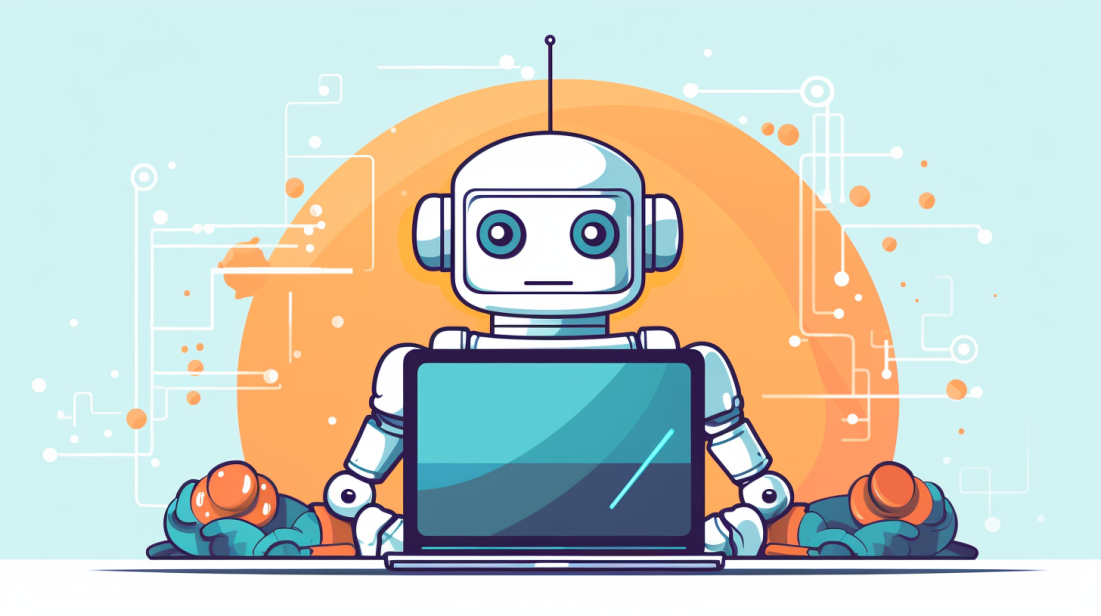
- AI has transformed healthcare, finance, governance, and education.
- Healthcare benefits from AI-enabled research, diagnoses, and treatment.
- Finance utilizes AI for risk management, wealth forecasting, and personal finance management.
- Governance employs AI in security, economic models, and public policy management.
- Education leverages AI for personalized learning and automated administrative tasks for teachers.
“AI has revolutionized industries, creating new career prospects and improving processes.”
Despite the concerns about AI potentially replacing human workers, experts argue that AI is still specialized and limited, and human judgment and skills remain crucial for decision-making and problem-solving. In fact, AI is expected to create more jobs and drive innovation in various sectors, providing individuals with new and exciting career paths.
As AI becomes increasingly prevalent, it also impacts the job search process. AI-powered programs are utilized to screen and analyze resumes, matching job seekers with suitable opportunities. This integration of AI in career planning streamlines the recruitment process and ensures better job fits for candidates.
Elon Musk, renowned entrepreneur and AI advocate, voices concerns about the future career prospects in a world where AI can outperform humans in various tasks. He suggests that individuals focus on being useful to society and prioritize finding career fulfillment while maintaining a healthy work-life balance.
In summary, the integration of AI in industries such as healthcare, finance, governance, and education has revolutionized processes and created new career opportunities. While concerns about job displacement exist, AI is still a specialized tool that complements human skills and judgment. As AI continues to advance, individuals can adapt and explore new opportunities amidst the changing landscape of AI-powered industries.
AI in Education and Career Planning
In today’s rapidly evolving world, artificial intelligence (AI) has become an integral part of various industries, including education and career planning. One of the key areas where AI is making a significant impact is personalized learning. AI technologies have the ability to analyze vast amounts of data and tailor educational content to meet the individual needs and preferences of students. By harnessing the power of AI, educators can create a more engaging and effective learning experience that maximizes student potential.
Not only does AI enhance the learning process, but it also helps automate administrative tasks for teachers. By automating tasks such as grading and scheduling, educators can allocate more time to focus on actual teaching and student support. This automation not only streamlines operations but also increases efficiency, allowing educators to provide a more enriching educational experience for their students.
Moreover, AI is revolutionizing career planning by matching job seekers with suitable opportunities. AI-powered platforms use algorithms to analyze data from various sources, including job requirements and candidate profiles, to identify the best fits for both employers and applicants. This not only saves time and effort but also increases the likelihood of finding a fulfilling career that aligns with individual skills and aspirations.
| Benefits of AI in Education and Career Planning: |
|---|
| 1. Personalized learning tailored to individual needs. |
| 2. Automation of administrative tasks for educators. |
| 3. Efficient matching of job seekers with suitable career opportunities. |
While AI offers immense potential in education and career planning, there are concerns about its impact on human workers. However, experts argue that AI is still specialized and limited, and human judgment and skills are irreplaceable. Rather than fearing job displacement, it is important to embrace the opportunities that AI brings. It is expected that AI will lead to the creation of new jobs and drive innovation in various sectors, offering exciting career prospects for individuals.
In conclusion, AI is transforming the education and career planning landscape, empowering both educators and job seekers. By leveraging AI technologies, educators can provide personalized learning experiences and automate administrative tasks, while job seekers can benefit from efficient and accurate career matching. It is crucial for individuals to adapt and stay updated with AI developments to remain competitive in the job market, while also considering the balance between work and personal life, as highlighted by visionary entrepreneur Elon Musk.
AI has revolutionized the healthcare industry, transforming the way we approach research, diagnoses, and treatment. With the ability to analyze vast amounts of data quickly and accurately, AI algorithms are helping researchers uncover new insights and breakthroughs in medical science.
One significant application of AI in healthcare is in the field of medical imaging. Radiologists and other healthcare professionals can utilize AI-powered algorithms to enhance the accuracy of diagnoses, leading to more efficient and effective treatment plans for patients. AI can identify patterns and anomalies in medical images, aiding in the detection of diseases such as cancer at an early stage when treatment options are most effective.
Furthermore, AI algorithms are being developed to assist in the automation of administrative tasks in healthcare settings. This allows healthcare professionals to focus more on direct patient care, improving overall efficiency and patient outcomes. AI can help in managing patient records, scheduling appointments, and even predicting potential health risks based on individual patient data.
| Research | Diagnoses | Treatment | Career Prospects |
|---|---|---|---|
| AI accelerates medical research with its ability to analyze vast amounts of data quickly and accurately. | AI-powered algorithms enhance the accuracy of diagnoses, leading to more effective treatment plans. | AI aids in the development of personalized treatment plans, improving patient outcomes. | The integration of AI in healthcare opens up various career prospects in fields such as medical research, data analysis, and AI algorithm development. |
The implementation of AI in healthcare presents promising career prospects for individuals interested in medical research, data analysis, and AI algorithm development. As the demand for AI technologies in healthcare continues to grow, professionals with expertise in AI methodologies and a deep understanding of the healthcare industry will be in high demand.
While concerns about AI potentially replacing human workers exist, it is important to recognize that AI is still specialized and limited in its capabilities. Human judgment and skills remain essential in providing compassionate patient care, interpreting complex medical data, and making critical treatment decisions. AI is expected to create more jobs and drive innovation in the healthcare sector, allowing healthcare professionals to focus on the aspects of their work that require human expertise and empathy.
In conclusion, AI has significantly impacted the healthcare industry by improving research, diagnoses, and treatment methods. The integration of AI technologies offers exciting career prospects for individuals interested in the intersection of healthcare and AI. While AI brings valuable advancements, it is important to remember that human judgment and skills are irreplaceable, and the collaboration between AI and healthcare professionals will be crucial in providing the best possible care for patients.
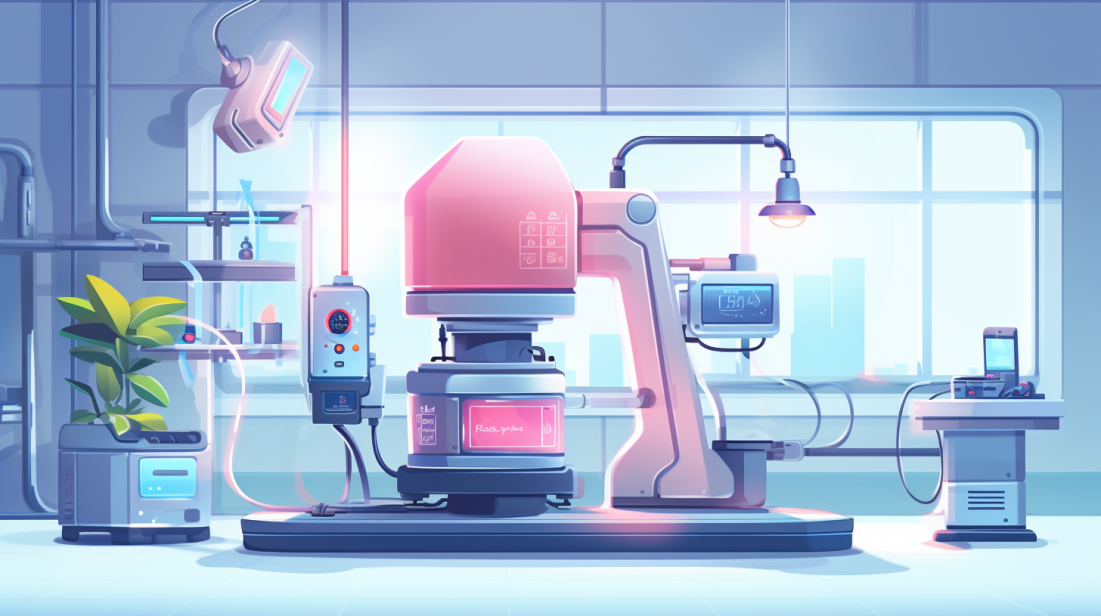
Artificial Intelligence (AI) has rapidly integrated into the finance industry, revolutionizing the way businesses manage risk, forecast wealth, and handle personal finances. With AI algorithms and machine learning capabilities, financial institutions can now make more accurate predictions and data-driven decisions, ultimately benefiting individuals and businesses alike.
In terms of risk management, AI-powered systems can analyze vast amounts of financial data in real-time, identifying patterns and detecting potential risks. This allows financial institutions to proactively mitigate risks and make informed decisions to protect their assets and investments.
| Risk Management | Wealth Forecasting | Personal Finance Management |
|---|---|---|
| AI analyzes financial data to identify potential risks and provide actionable insights. | AI algorithms predict future market trends, allowing individuals and businesses to make informed investment decisions. | AI-powered applications help individuals manage their finances, offering personalized recommendations and automated budgeting. |
Furthermore, AI technologies enable wealth forecasting by analyzing historical market data and identifying trends. This empowers financial professionals and investors to make strategic decisions and optimize their portfolios for greater returns.
When it comes to personal finance management, AI-powered applications play a crucial role. These applications can automate budgeting, track expenses, and provide personalized recommendations for individuals to optimize their financial health. With AI, individuals can receive tailored financial advice and improve their financial literacy, leading to better money management and long-term financial stability.
Overall, the integration of AI in finance has transformed the industry, offering enhanced risk management, accurate wealth forecasting, and personalized financial management. As AI continues to advance, it will drive further innovation and present new opportunities for individuals and businesses in the financial sector.
When it comes to governance, AI has emerged as a powerful tool in tackling the challenges of security, economic models, and public policy management. By leveraging AI technologies, governments and policymakers can gather and analyze vast amounts of data to make informed decisions and improve the effectiveness of their policies.
AI in security plays a crucial role in identifying and mitigating threats. Through advanced algorithms, AI systems can analyze patterns and detect anomalies, helping to prevent cyberattacks and safeguard sensitive information. Furthermore, AI-powered surveillance systems enable authorities to monitor public spaces and identify potential security risks, enhancing overall safety and security.
In economic models, AI can assist in predicting market trends, evaluating economic indicators, and optimizing resource allocation. By processing and analyzing complex data sets, AI algorithms can generate valuable insights that aid in decision-making and improve economic efficiency.
Public policy management also benefits from AI applications. AI systems can analyze public sentiment by scanning social media platforms and online forums, providing policymakers with real-time feedback and insights on public opinion. This enables governments to design policies that address the needs and concerns of their citizens, fostering more inclusive and responsive governance.
| AI Applications in Governance | Benefits |
|---|---|
| Security | – Enhanced threat detection and prevention – Improved surveillance and public safety |
| Economic Models | – Accurate market trend predictions – Optimal resource allocation – Enhanced economic efficiency |
| Public Policy Management | – Real-time public sentiment analysis – Informed decision-making and policy design |
“AI in governance has the potential to revolutionize the way we approach security, economic models, and public policy. By leveraging advanced technologies, governments can enhance public safety, improve economic efficiency, and design policies that truly reflect the needs and aspirations of their citizens.”
As AI continues to evolve, the integration of AI in governance is expected to grow exponentially, creating new career opportunities in areas such as data analysis, policy research, and AI implementation. However, it is essential to acknowledge the potential challenges and ethical considerations associated with AI in governance. Ensuring transparency, accountability, and fairness in AI algorithms and decision-making processes is crucial to avoid biases and unintended consequences.
In conclusion, AI’s impact on governance is undeniable. From enhancing security measures to optimizing economic models and improving policy management, AI technologies have the potential to reshape the way governments operate. As we navigate this rapidly evolving landscape, it is crucial to strike a balance between harnessing the potential of AI and upholding ethical standards to ensure its responsible use in governance.
Looking ahead, AI is expected to play an increasingly prominent role in governance. With advancements in machine learning and natural language processing, AI systems will become more sophisticated, enabling governments to automate administrative tasks, streamline processes, and improve decision-making.
However, it is important to note that AI is not a substitute for human judgment and intuition. While AI can provide valuable insights and recommendations, ultimately, human policymakers must exercise their expertise and subjective judgment to make informed decisions. AI should be seen as a complementary tool that enhances governance processes rather than replacing human input.
As AI continues to evolve, governments must prioritize the development of policies and regulations that govern its use and ensure transparency, accountability, and privacy. Collaboration between policymakers, technologists, and ethicists is crucial to address the challenges and risks associated with AI in governance while maximizing its potential benefits.
The Role of AI in Career Planning
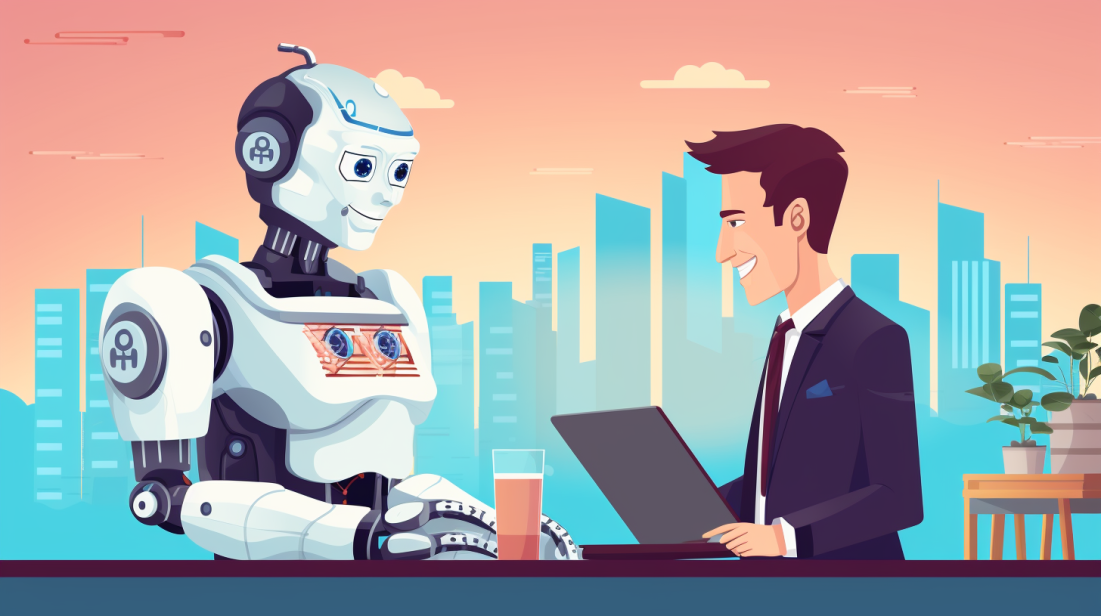
When it comes to job search and career development, AI has revolutionized the way we navigate through the professional world. With the help of AI-powered programs, the job search process has become more efficient and convenient. These programs can screen, analyze, and match resumes with potential job opportunities, making it easier for job seekers to find the right fit.
Recruitment processes have also been impacted by AI, as companies increasingly rely on algorithms to filter and shortlist candidates. This automated approach saves time and resources for both employers and job seekers. However, it is essential to strike a balance between technology and human judgment. While AI can streamline the hiring process, it cannot replace the human element of assessing a candidate’s potential and fit within a company’s culture.
A key aspect of career planning influenced by AI is job satisfaction. AI-powered tools can help individuals gain insights into their strengths, weaknesses, and interests, enabling them to make informed decisions about their career paths. These tools often provide personalized recommendations for professional development and learning opportunities, empowering individuals to enhance their skills and stay competitive in the job market.
The Impact of AI on Career Development
Career development is a lifelong journey, and AI has a significant role to play in this process. As AI technologies continue to advance, individuals can leverage these tools to explore new career paths, identify emerging job trends, and adapt their skills accordingly. AI can provide valuable insights into the skills and qualifications needed for specific professions, allowing individuals to make more informed decisions about their career goals.
While AI offers numerous opportunities for career growth, it is crucial to address potential biases embedded in AI algorithms. Some AI systems may inadvertently perpetuate existing inequalities and biases, which can affect career prospects for certain individuals or demographics. To ensure a fair and inclusive job market, it is essential to continually refine and improve AI algorithms, while also relying on human judgment and intervention to prevent any discriminatory outcomes.
As we navigate the ever-changing landscape of the job market, it is clear that AI will continue to shape career choices and opportunities. While there are concerns about job displacement, experts argue that AI is still limited in its capabilities and cannot fully replace human workers. Instead, AI is expected to create new jobs and drive innovation in various industries.
In conclusion, AI’s impact on career planning, job search, recruitment, job satisfaction, and career development is undeniable. By harnessing the power of AI tools and technologies, individuals can find the right career paths, enhance their skills, and make informed decisions that align with their passions and goals.
The Concerns and Opportunities of AI
As artificial intelligence (AI) continues to advance, concerns regarding job displacement have become more prevalent. Many worry that AI will replace human workers, leading to unemployment and economic instability. However, experts argue that these fears may be unfounded. AI is specialized and limited in its capabilities, and human judgment and skills remain essential in many aspects of the workforce.
While AI may automate certain tasks, it also presents new opportunities and job prospects. With the integration of AI in various industries, such as healthcare, finance, governance, and education, there is a growing demand for professionals who can develop and manage AI technologies. These new positions offer higher-paid and more rewarding career paths for individuals with the necessary skills and expertise.
Innovation is another key area where AI can drive growth. As AI technology continues to evolve, it opens up possibilities for the development of new products and services. This innovation not only creates new job opportunities but also contributes to economic growth and advancement. AI has the potential to revolutionize industries, leading to improved efficiency, better decision-making, and enhanced customer experiences.
| Concerns of AI | Opportunities of AI |
|---|---|
|
|
It’s important to remember that AI should be seen as a tool to augment human capabilities, rather than a replacement. AI can assist in streamlining processes, improving productivity, and making more informed decisions. However, human judgment and critical thinking are still necessary to evaluate and interpret the output of AI systems, ensuring ethical practices and preventing biased outcomes.
As the impact of AI on career choices continues to unfold, it’s crucial for individuals to stay adaptable and continuously update their skills. Embracing lifelong learning and developing expertise in AI-related fields can help professionals remain competitive in the job market. The ability to effectively collaborate with AI technologies will be a valuable asset in the future workforce.
“Technology is a tool. It’s up to people to use it effectively and create value.” – Elon Musk
Section 9: The Future of AI and Career Paths
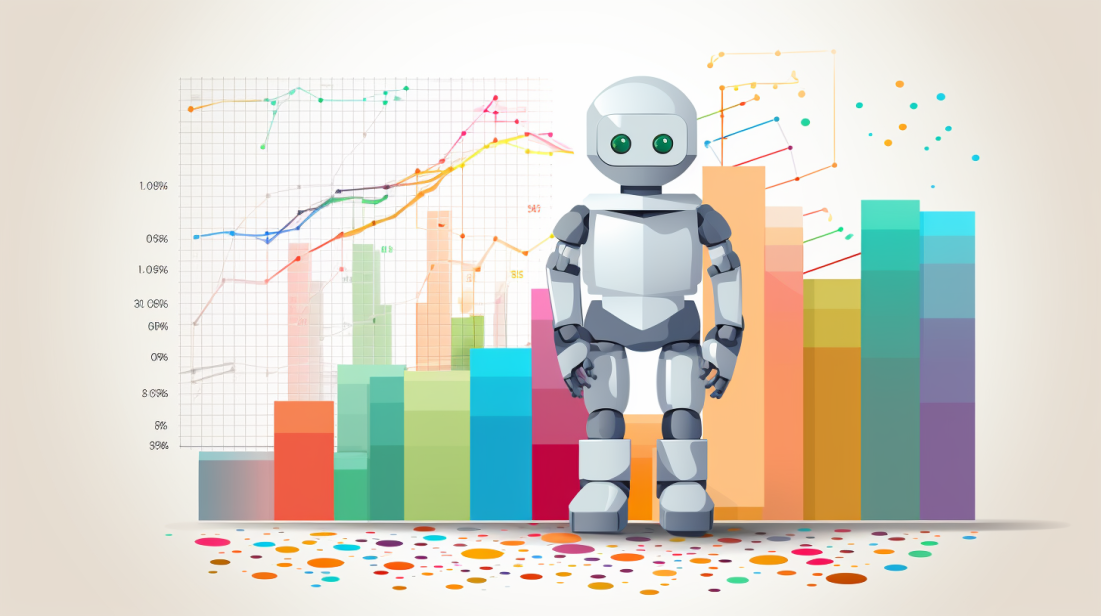
As artificial intelligence (AI) continues to evolve and shape various industries, it is crucial to consider its impact on job prospects, skill requirements, bias, and career growth. The integration of AI across sectors brings both opportunities and challenges that professionals need to navigate in order to thrive in the future workforce.
When it comes to job prospects, AI is expected to create new roles and transform existing ones. While some jobs may be automated, experts predict that AI will primarily augment human capabilities rather than replace them entirely. This means that individuals who possess a combination of technical expertise and soft skills, such as creativity, critical thinking, and emotional intelligence, are likely to have better prospects in the evolving job market.
However, it is essential to address potential biases within AI algorithms. As AI systems rely on data for learning and decision-making, they can inadvertently perpetuate existing biases present in the data they are trained on. To ensure fairness and equality in career opportunities, it is crucial to continually monitor and mitigate bias in AI algorithms, and develop inclusive and diverse training data.
Career growth in the age of AI requires a mindset of continuous learning and adaptability. As AI technologies advance, the demand for skills in areas such as data analysis, machine learning, and cybersecurity is expected to grow. Professionals should be proactive in acquiring these skills and staying updated with the latest industry trends to remain competitive in their respective fields.
| Key Points: | Implications for Career Paths: |
|---|---|
| AI creates new roles and transforms existing ones. | Professionals need to adapt and acquire the skills required for emerging job opportunities. |
| Bias in AI algorithms must be addressed. | Efforts should be made to monitor, mitigate, and promote fairness and equality in career prospects. |
| Continuous learning and adaptability are essential. | Professionals should stay updated with the latest industry trends and acquire in-demand skills to remain competitive. |
In summary, the future of AI and career paths is one of constant change and evolution. While AI presents opportunities for innovation and job growth, it also requires individuals to develop the necessary skills and adapt to the changing demands of the workforce. By addressing bias and promoting inclusivity, professionals can ensure that AI technologies contribute positively to career prospects and growth.
When it comes to the future of career choices in a world heavily influenced by AI, Elon Musk has offered his unique perspective. The visionary entrepreneur and CEO of Tesla and SpaceX has expressed concerns about job prospects in an era of increasing automation.
Musk emphasizes the importance of finding career fulfillment and maintaining a healthy work-life balance. He believes that individuals should focus on being useful to society, rather than solely fixating on job security. Musk encourages people to seek out opportunities that align with their passions and make a positive impact.
“I think it’s important to have a future that is inspiring and appealing. If it’s not, then that becomes a very demotivating future. The future where we are a space-faring civilization out there among the stars, I find that incredibly exciting.” – Elon Musk
Musk’s perspective reminds us that while AI and automation may change the nature of work, they also open up new possibilities for innovation and personal growth. It is crucial to embrace the evolving landscape and adapt to the challenges and opportunities that arise.
The Balance Between Work and Personal Life
Another aspect highlighted by Musk is the importance of work-life balance. In a world where AI can outperform humans in certain tasks, he suggests that individuals should carefully consider the balance between their professional and personal lives.
While AI can automate repetitive or mundane tasks, it cannot replicate the intrinsic value of human connection, creativity, and emotional intelligence. Musk encourages individuals to prioritize their well-being, relationships, and personal interests alongside their career aspirations.
| Key Takeaways |
|---|
| Elon Musk emphasizes the importance of finding career fulfillment and making a positive impact on society. |
| Musk encourages individuals to be adaptable and embrace the changing landscape of work, driven by AI and automation. |
| Work-life balance is crucial in a world where AI can outperform humans in certain tasks. |
Conclusion
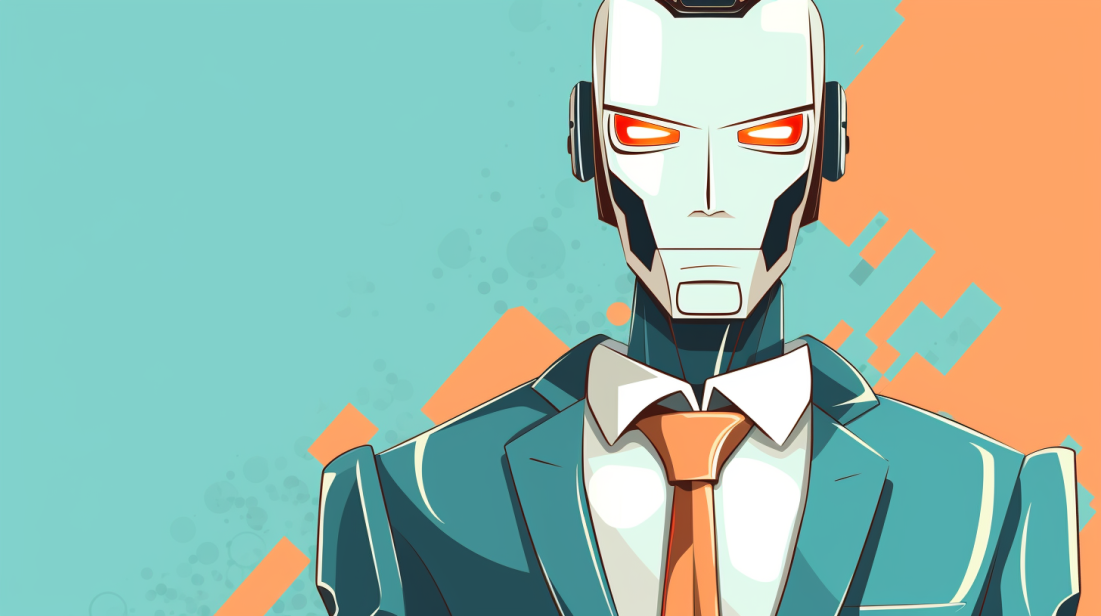
In conclusion, understanding the impact of AI on career choices is crucial in today’s rapidly evolving world. AI has become integrated into various industries, including healthcare, finance, governance, education, and career planning.
In the field of education, AI technologies enable personalized learning experiences for students and assist teachers in automating administrative tasks. In healthcare, AI aids in medical research, diagnoses, and treatment. In finance, AI contributes to risk management, wealth forecasting, and personal finance management. In governance, AI is employed in areas such as security, economic models, and public policy management. Furthermore, AI plays a significant role in career planning by matching job seekers with suitable opportunities.
While concerns about AI potentially replacing human workers exist, experts argue that AI technology is still specialized and limited. Human judgment and skills remain essential in conjunction with AI technology. It is expected that AI will create more jobs and drive innovation across various sectors. As AI becomes increasingly prevalent, it also impacts the job search process, with AI-powered programs screening and analyzing resumes.
Elon Musk, one of the leading figures in the tech industry, is concerned about the future of career prospects in a world where AI can outperform humans. He suggests that individuals should focus on being useful to society and consider the balance between work and personal life to find career fulfillment.
How Will AI Affect the Plumbing Career Path in Terms of Opportunities and Growth?
The increasing integration of artificial intelligence (AI) in the plumbing industry will have a profound impact on plumbing career growth opportunities. AI-powered tools and systems can optimize plumbing processes from leak detection to pipe maintenance, resulting in increased efficiency and reduced labor demands. Moreover, plumbers with knowledge in AI-driven technologies will be in high demand as the industry embraces automation and innovative techniques. As AI continues to evolve, there will be an ever-increasing need for skilled professionals to adapt and capitalize on the new opportunities it presents in the plumbing career path.
FAQ
Q: How is AI integrated into different industries?
A: AI has become integrated into various industries, including healthcare, finance, governance, education, and career planning. It is used in personalized learning for students, automating tasks for teachers, aiding research and diagnosis in healthcare, risk management and wealth forecasting in finance, security and economic models in governance, and matching job seekers with suitable opportunities in career planning.
Q: What are the benefits of AI in education and career planning?
A: AI can personalize the learning experience for students and assist teachers in automating tasks, leading to more effective and efficient education. In career planning, AI helps match job seekers with suitable opportunities, improving the job search process.
Q: How does AI impact the healthcare industry?
A: AI aids in medical research, diagnoses, and treatment in healthcare. It improves efficiency and accuracy, leading to better patient outcomes and potentially new treatments.
Q: What role does AI play in the finance industry?
A: AI is used in finance for risk management, wealth forecasting, and personal finance management. It helps in making informed financial decisions and managing investments more effectively.
Q: How is AI utilized in governance?
A: AI is employed in governance for security, economic models, and public policy management. It helps in analyzing data, predicting outcomes, and making informed decisions in government processes.
Q: How does AI impact career planning and job search?
A: AI-powered programs are used in the job search process, including resume screening and analysis. It improves efficiency in matching job seekers with suitable opportunities and streamlining the recruitment process.
Q: What are the concerns and opportunities associated with AI in career choices?
A: There are concerns about job displacement and potential bias in AI algorithms. However, AI also creates new job opportunities and drives innovation in various sectors. Human judgment and skills remain essential in conjunction with AI technologies.
Q: What is the future of AI and career paths?
A: AI is expected to impact job prospects and require individuals to adapt their skills to the changing landscape. Addressing bias in AI algorithms and continuous career growth and adaptation are crucial in the age of AI.
Q: What is Elon Musk’s perspective on AI and career choices?
A: Elon Musk has expressed concerns about job prospects in a world where AI can outperform humans. He suggests focusing on being useful to society and finding fulfillment while maintaining a healthy work-life balance.






